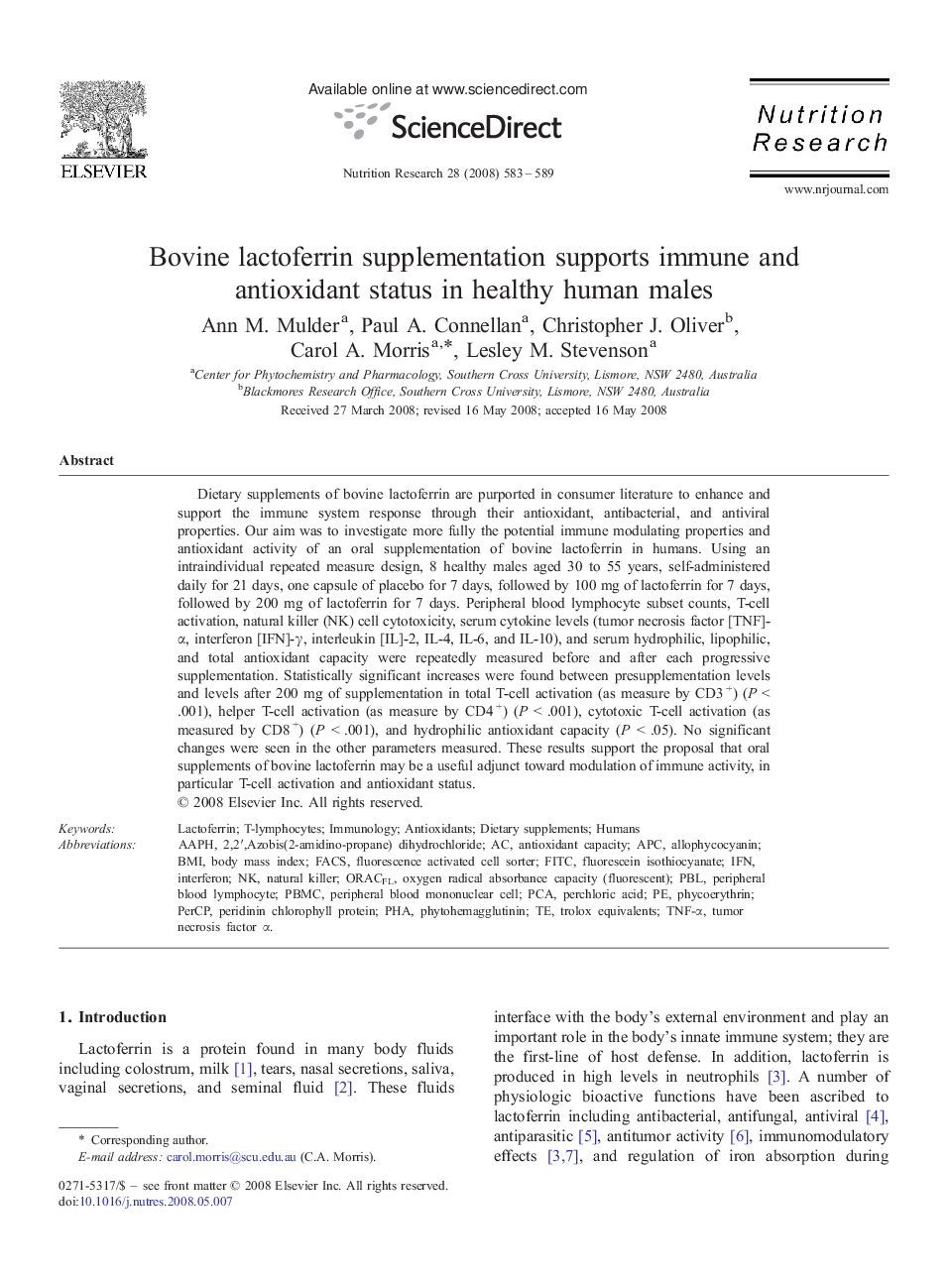| Article ID | Journal | Published Year | Pages | File Type |
|---|---|---|---|---|
| 2809647 | Nutrition Research | 2008 | 7 Pages |
Dietary supplements of bovine lactoferrin are purported in consumer literature to enhance and support the immune system response through their antioxidant, antibacterial, and antiviral properties. Our aim was to investigate more fully the potential immune modulating properties and antioxidant activity of an oral supplementation of bovine lactoferrin in humans. Using an intraindividual repeated measure design, 8 healthy males aged 30 to 55 years, self-administered daily for 21 days, one capsule of placebo for 7 days, followed by 100 mg of lactoferrin for 7 days, followed by 200 mg of lactoferrin for 7 days. Peripheral blood lymphocyte subset counts, T-cell activation, natural killer (NK) cell cytotoxicity, serum cytokine levels (tumor necrosis factor [TNF]-α, interferon [IFN]-γ, interleukin [IL]-2, IL-4, IL-6, and IL-10), and serum hydrophilic, lipophilic, and total antioxidant capacity were repeatedly measured before and after each progressive supplementation. Statistically significant increases were found between presupplementation levels and levels after 200 mg of supplementation in total T-cell activation (as measure by CD3+) (P < .001), helper T-cell activation (as measure by CD4+) (P < .001), cytotoxic T-cell activation (as measured by CD8+) (P < .001), and hydrophilic antioxidant capacity (P < .05). No significant changes were seen in the other parameters measured. These results support the proposal that oral supplements of bovine lactoferrin may be a useful adjunct toward modulation of immune activity, in particular T-cell activation and antioxidant status.
